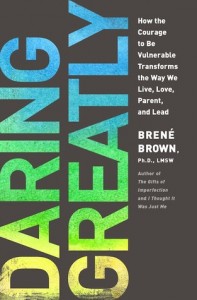 Daring Greatly: How the Courage to Be Vulnerable Transforms the Way We Live, Love, Parent, and Lead by Brené Brown
Daring Greatly: How the Courage to Be Vulnerable Transforms the Way We Live, Love, Parent, and Lead by Brené Brown
Publisher: Gotham
Number of pages: 260
My copy: Kindle edition
“It is not the critic who counts; not the man who points out how the strong man stumbles, or where the doer of deeds could have done them better. The credit belongs to the man who is actually in the arena, whose face is marred by dust and sweat and blood; who strives valiantly; . . . who at best knows in the end the triumph of high achievement, and who at worst, if he fails, at least fails while daring greatly.†—Theodore Roosevelt
Every day we experience the uncertainty, risks, and emotional exposure that define what it means to be vulnerable, or to dare greatly. Whether the arena is a new relationship, an important meeting, our creative process, or a difficult family conversation, we must find the courage to walk into vulnerability and engage with our whole hearts.
In Daring Greatly, Dr. Brown challenges everything we think we know about vulnerability. Based on twelve years of research, she argues that vulnerability is not weakness, but rather our clearest path to courage, engagement, and meaningful connection. The book that Dr. Brown’s many fans have been waiting for, Daring Greatly will spark a new spirit of truth—and trust—in our organizations, families, schools, and communities.
* * *
I first heard about Brené Brown from one of my favorite personal blogs, and there I found her TEDx talk on vulnerability and shame. From then on, I was a fan, and I really wanted to read her book that talked more about vulnerability. I considered my 2013 as a year of learning about vulnerability (besides learning how to be brave), and I thought that it was such a mind-blowingly simple thing, this vulnerability. I mean, it’s simple because it’s all in us, but it’s also possibly quite the hardest thing anyone will ever allow themselves to be. But it’s necessary, right?
2013 came and went, and it was a rollercoaster of a year for me. Sometime near the end of the year, I decided that I was going to make Daring Greatly one of the first books I will read in 2014, because the end of 2013 kind of steered me in that direction. So when 2014 rolled around, I opened the book and started reading.
10% in, and I was already learning so much, that I wondered why I didn’t try to read it earlier. I mean, this could have helped me deal with life things back then!
On a serious note, Daring Greatly is a book that dares us to dare greatly. If you’ve watched her TEDx talks, this book is pretty much an expanded edition of what she said there. Daring Greatly: How the Courage to Be Vulnerable Transforms the Way We Live, Love, Parent, and Lead is about how we can practice vulnerability and cultivate shame resilience in our everyday lives so we can dare greatly and help others to do the same. Using comprehensive research on shame (the one she talked about on the video — yes, this is me urging you to watch that video), Brené talked about her personal experiences and the results she received from interviews and surveys that shed light on shame and how it is to be the “man in the arena”.
I loved this. Like I said, 10% into the book, I was already nodding and noting and highlighting so many parts, because they rang true. These were the things I was trying to learn myself last year, and the things I tried to practice. These were the things I desired to have with practicing vulnerability. I loved how open and relatable this was, and I could feel that the writing itself was very vulnerable, with the way Brené shared bits of her life and research in the book. And it’s compassionate, too, because even if some parts hit hard — as in, I can’t believe I didn’t do this, I’m so stupid, la la la — she always brings you back to the fact that our mistakes don’t make us. We may make wrong choices, but it doesn’t tell us what we’re worth.
I enjoyed reading this for the most part because it’s not just a self-help book, but also a book packed by research. Brené even talked about her research process at the end of the book, and you she knows what she’s talking about. It’s so refreshing to read this, and find someone openly discussing something that we all want to be (even if sometimes we didn’t think we want it). I really enjoyed the chapters on debunking vulnerability myths, and that chapter she named after Harry Potter. :D (Because when you think about it, shame is like a dementor.) I think I just sort of spaced out with the vulnerability in a corporate setting (which is funny because I should be interested in that given that I live in corporate world). The parenting section was interesting even if I’m not a parent, and you know that these are just the things you want to note for when you have your own kids.
So overall, I really liked this book, and I was glad that I read this to start off my 2014. I really liked Brené’s Final Thoughts in the book, about that guy who was inspired by Brené’s TED talk, and decided to tell the girl he was dating for several months that he loved her. He got rejected.
She told him that she thought he was “awesome” but that she thought they should date other people. When he got back to his apartment after talking to his girlfriend, he told his two roommates what had happened. He said, “They were both hunched over their laptops and without looking up one of them was like ‘What were you thinking, man?'” One of his roommates told him that girls only like guys who are running the other way. He looked at me and said, “I felt pretty stupid at first. For a second I was mad at myself and even a little pissed at you. But then I thought about it and I remembered why I did it. I told my roommates, ‘I was daring greatly, dude.'”
He smiled when he told me, “They stopped typing, looked at me, nodded their heads, and said, ‘Oh. Right on, dude.'”
I truly believe that Brené Brown had it right: Daring greatly is not about winning or losing. It’s about courage. There were many things in Daring Greatly that I wished I had known earlier, but it’s also okay that I learned it now, because I don’t think I would have appreciated its value then. To live an authentic, wholehearted life, we need to dare greatly, over and over again. Even if we fail, because guess what — our failures have nothing on us, because we are enough. :)
I was daring greatly, dude. :)
Number of dog-eared pages: 74
Favorite dog-eared quotes:
Vulnerability is the birthplace of love, belonging, joy, courage, empathy, and creativity. It is the source of hope, empathy, accountability and authenticity…to let ourselves sink into the joyful moments of our lives even though we know that they are fleeting, even though the world tells us not to be too happy lest we invite disaster – that’s an intense form of vulnerability.
The willingness to show up changes us. It makes us a little braver each time.
Only when we’re brave enough to explore the darkness will we discover the infinite power of our light.
Yes, softening into joy is uncomfortable. Yes, it’s scary. Yes, it’s vulnerable. But every time we allow ourselves to lean into joy and give in to those moments, we build resilience and cultivate hope. The joy becomes a part of who we are, and when bad things happen — and they do happen — we are stronger.
“What are the gremlins saying?”
Shame hates having words wrapped around it. If we speak shame, it begins to wither.
Shame resilience is the ability to say, “This hurts. This is disappointing, maybe even devastating. But success and recognition and approval are not values that drive me. My value is courage and I was just courageous. You can move on, shame.”
If you own this story you get to write the ending.
I am not what happened to me. I am what I choose to become.
Don’t try to win over the haters; you’re not the jackass whisperer.
Sometimes the bravest and most important thing you can do is just show up.
Rating: [rating=4]

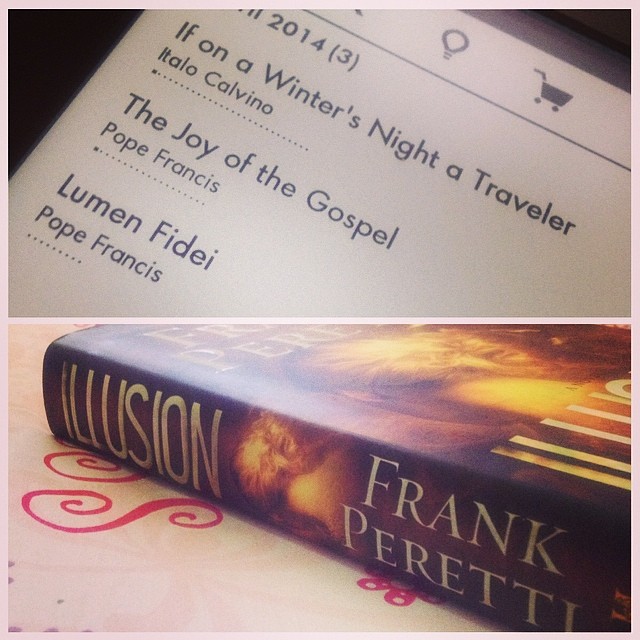

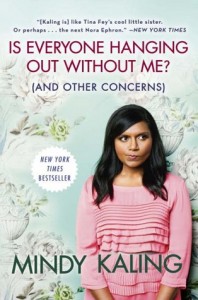
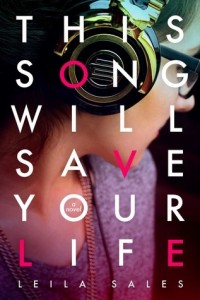
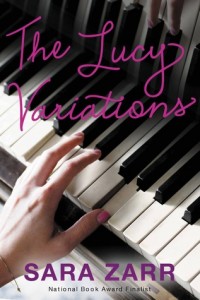 The Lucy Variations by Sara Zarr
The Lucy Variations by Sara Zarr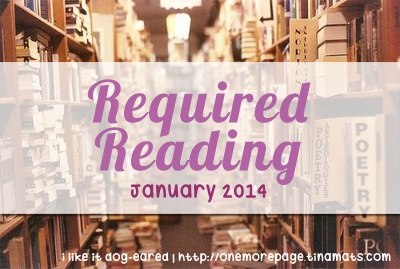
 Daring Greatly: How the Courage to Be Vulnerable Transforms the Way We Live, Love, Parent, and Lead by Brené Brown
Daring Greatly: How the Courage to Be Vulnerable Transforms the Way We Live, Love, Parent, and Lead by Brené Brown